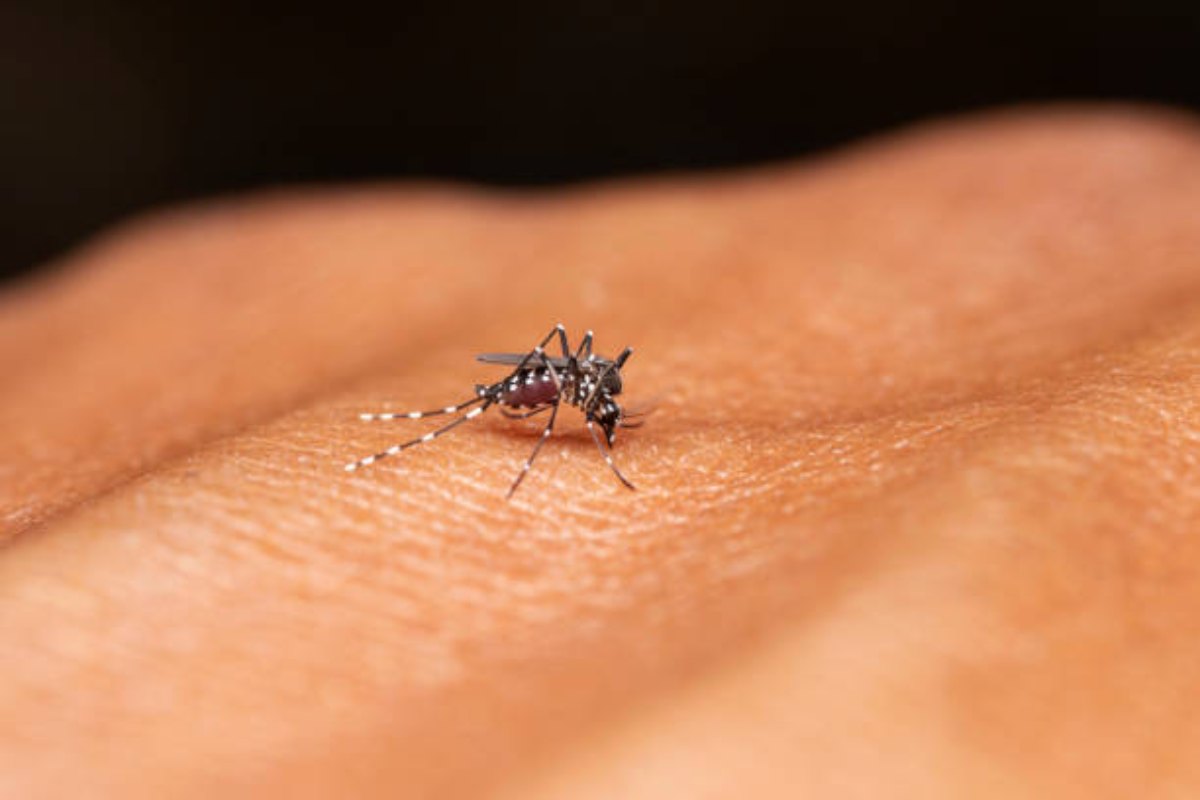Climate change responsible for 19 pc of rising dengue cases: Study
Amid record year for dengue infections globally, a new study has found that climate change is responsible for 19 per cent of rising dengue burden.
Dengue is generally spread by the Aedes aegypti species of the mosquito in urban areas, while the Aedes albopictus is usually found in rural areas and can exist in cold temperatures in winters in the region.

[Representational Photo : file photo]
An entomological study has been started to ascertain the cause of higher density of mosquito species Aedes albopictus in the urban areas, an official said today.
The entomological studies revealed mosquito species Aedes Albopictus had emerged as the primary vector carrying the dengue virus in the region surpassing another species Aedes aegypti in the region.
Additional secretary of the urban development and municipal affairs department and additional director of the state urban development agency Joly Choudhury had recently said in Siliguri that a study was going on to find out the reason.
Advertisement
“The population of Aedes Albopictus has been found in urban areas in higher numbers. A study is underway to find out the cause, “ Mr Choudhury said.
Dengue is generally spread by the Aedes aegypti species of the mosquito in urban areas, while the Aedes albopictus is usually found in rural areas and can exist in cold temperatures in winters in the region. The entomological studies, however, found the significant rise and high density of Aedes albopictus in the civic body areas for the past few years.
An entomologist said the Aedes albopictus species had adapted to exist in cold temperatures also.
A significant population of the species has been found in the urban areas in the past few years. It also becomes active in cold weather. The proper destruction of the mosquito breeding grounds is another important step,” said an entomologist.
This species can develop and survive in a wider range of environmental temperatures ranging from 15 degree Celsius to 35 degree Celsius . In low temperatures it survives longer. Proper anti-vector activities are necessary to destroy the breeding sites and restrict the population buildup. A comprehensive Integrated Mosquito Management (IMM) programme has to be followed based on current knowledge on biology, ecology and prevailing insecticide resistance status of the dengue vectors. The species will become inactive during the winter,” said an insect biologist Prof Dhiraj Saha, who teaches insect biology at North Bengal University.
The entomologists underlined Aedes albopictus, which mostly found in Siliguri, is a forest dwelling mosquito species, its preferred breeding habitats are mainly of natural origin, such as tree holes, bamboo cavities , coconut shells, aloe vera and related plantations, flowering pots filled with water, aquatic plantations in gardens and even dead leaves.
Advertisement